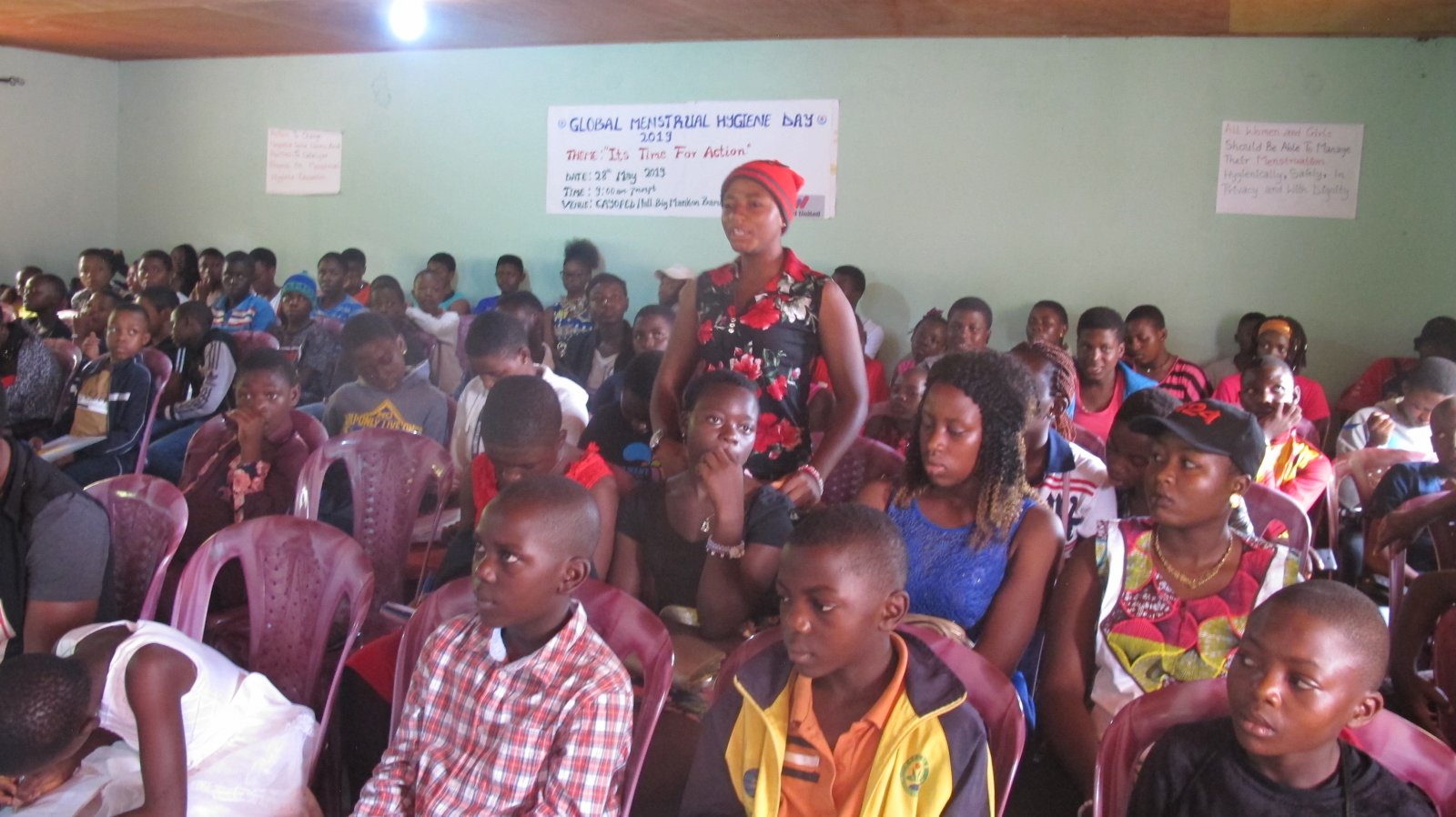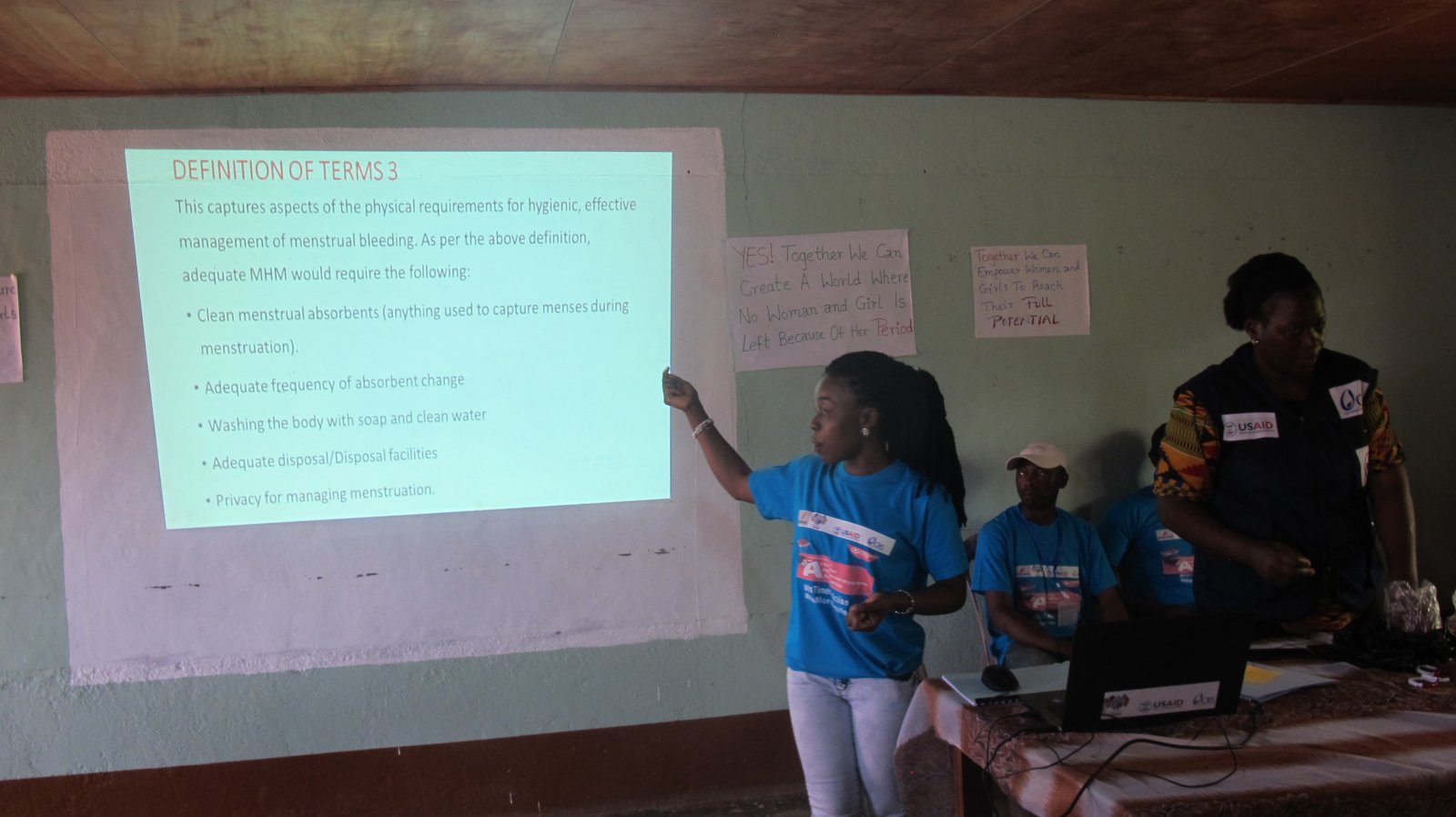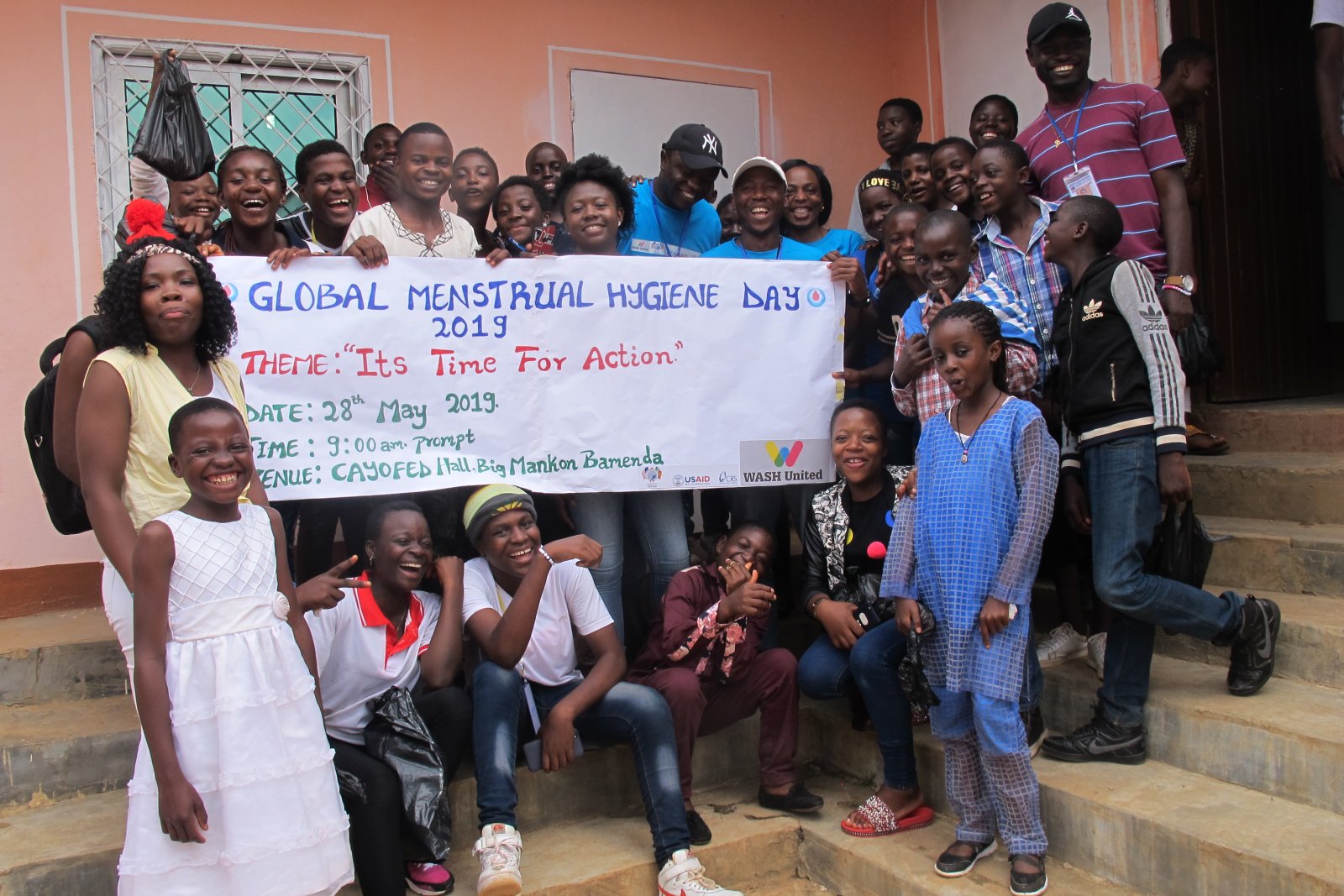…BREAKING THE SILENCE AROUND MENSTRUATION
Jun 5, 2019
Story



Period talk jingles… Then came the time for secondary school. I attended a boarding secondary school. First menarche showed up and then vanished. I told my Mom, Dad and older sister. I had some knowledge on menstruation from my parents and sibling and was always supplied with menstrual hygiene management absorbent. Each time I run out of allowance and/or extra pads I would just tell my dad I needed sanitary pads. And he would provide me with more allowance than my brothers because he knew my basic needs were more than that of my brothers… that he would tell his children just so his children are not at each other’s throats because of allowance. I would always return home for vacation without any absorbents because my friends and school mates had used it to manage their menstruation. My family and I attended Mass one Sunday morning. After Mass, as I traced my family, a young girl walked up to me and said, “you have a blood stain on skirts.” Shocked I turned around, gathered my dress to cover up the stained area and thanked the girl. I told no one what had happened. I just managed my period once we got home. Then came school resumption and this time around I had been enrolled to attend a day school. While in a biology class the menstrual cycle was being explained by the biology teacher. A female classmate changed seats and moved up to where I was seated and asked me to explain the menstrual cycle to her. I responded that I have not understood it and thus will not be able to explain it. In a rude and loud tone, she said, “you think I do not know that you are menstruating already, stop pretending.” Once again I was shocked and embarrassed. Slowly I turned and looked behind the class and gazed at the same girl who had walked up to me in church to tell me I was stained (yes! It so happened that we are in the same class). I said nothing and turned to face the teacher once again. The class burst up in whispers and I became the talk of God – knows – how long. It was obvious that the girl from church had narrated my menstrual story to this classmate of ours who had to embarrass me as such I was tagged as the girl who got stained with menses in church. Suddenly, life changed in a funny way. The fact that I started menstruating or the fact that I got stained with menses was not the issue. The problem was how people looked at me, it made me feel guilty as if it were wrong for me to menstruate, for others it meant I was sexually active already, I was a big girl, I should not mingle, lots of gossip about a girl who menstruates, even my right to privacy had been violated, etc. I had to put up with all the stigma but made sure I managed myself properly and didn’t skip school as well. I stayed away from the girl who walked up to me in church and from her group as well.
As a menstrual health educator (Sexual and Reproductive Health - SRH Coordinator), I work with about 600 adolescents 10 – 18 years of age across Bamenda Health District of North West Region. We carry out SRH activities with the adolescents (both boys and girls) with focus on topics as puberty, fertility, HIV/AIDS, sexual and gender based violence, positive parenting, etc. through:
- Community peer-led group discussions – these sessions are held in safe spaces considering the insecurity we face in our conflict stricken zone
- Home based SRH counseling – these services are offered to adolescents through home visits.
- Health Clubs – this was operational before but difficult now with irregularity and insecurity with regards to schools.
Dealing with adolescents is not an easy task especially as it comes with a lot of hyperactivity, experimentations, and the fact that they are struggling to understand their emotions and how to cope with them. With no regular or effective form of schooling, adolescents and care givers are reach through community peer-led group discussions and home based SRH counseling.
A majority of the adolescents I work with are girls and most of which are menstruating already. The following are challenges shared by adolescents:
- Persisting taboos and restrictions related to MHM (cannot interact with others, cannot go out, cannot play, sleep separately from other family members cannot go to the palace, termed unclean, cannot eat certain foods, etc.)
- Girls are considered women as soon as they start menstruating (Early and/forced marriage).
- Taboos and myths related to menstruation often portray women and girls as inferior to men and boys.
- Stigma for being regarded as unclean and promiscuous
- Limited access to affordable and hygienic sanitary materials including under wears. Some use old pieces of clothes/loin cloth, toilet paper, grass (especially those who have relocated to the bushes for security reasons).
- Disposal options are limited
- Insufficient access to safe private and public toilets/sanitary facilities
- Lack of clean water and soap for personal hygiene
- Little or no privacy
- Anxiety and embarrassment around leakage and discomfort.
- Shy and timid
- Lack of knowledge on menstrual hygiene management
- Myths and stigmas surrounding menstruation cause some girls and women to miss school or work or go into isolation.
Successes – First my story served as a motivation to enable other girls and women embrace the reality of menstruation. If I could pull through my period stigma then you, you, you, you…… can as well. The SRH sessions held with adolescents be it home based or community based, caregivers/parents call to appreciate the counseling and educative sessions held with their adolescent children. This has help improved the relationship between caregivers/parents and children as they are able to engage into the lives of their children especially as adolescence comes with a lot of changes. “Through home based SRH counseling, I have been able to manage the menstruation of my 13 year old daughter who just started menstruating”, said a parent. Furthermore, there is the quest of more sessions by parents and children and adolescents in other areas which haven’t reached are requesting for such educative sessions as well.
Impact – Caregivers (men and women) and adolescents (boys and girls) have been made aware of the importance of menstrual hygiene education through open dialogues and education via home based SRH counseling and community peer-led group discussions. This strategy has fostered engagement and development with this often unspoken issue (menstruation). Hence, the objective of breaking the silence around menstruation is achieved and women and girls are able to achieve their full potential. It is worth noting that a positive health effects have been noted with menstrual hygiene management.
To conclude, the Global Menstrual Hygiene Day 2019, commemorated on 28th May under the theme “ITS TIME FOR ACTION” – which not emphasizes the urgency of this public health issue, but also highlights the transformative power of improved menstrual hygiene to empower the world’s women and girls and unlock their economic and educational opportunities. Over 200 adolescents (boys and girls) participated in the commemoration during which adolescents received menstrual hygiene education and menstrual hygiene kits. The kits for girls contained pads, pants and soap while the kits for boys contained pants and soap. As part of the celebration, the adolescents took part in role plays, poems, spoken words all centered on menstruation.




